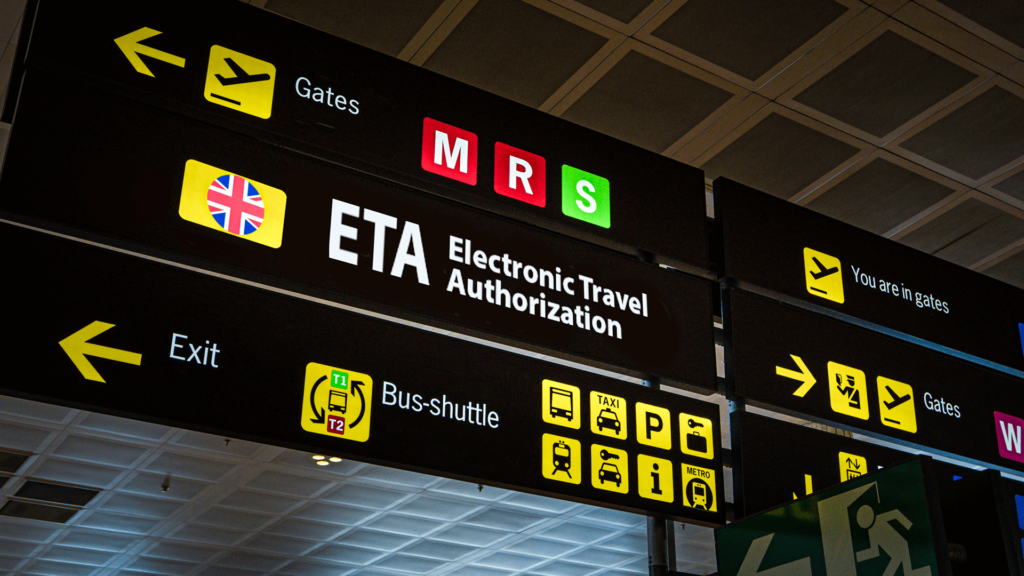On 12 May 2025 the Government released a White Paper entitled ‘Restoring Control over the Immigration System’ which can be found here. The paper highlights how, in the Government’s view, failure to control economic migration can put pressure on public services, public finances and the housing market. The Government therefore feels that an entirely new approach to economic migration is required, bringing a focus to the Points-Based system and training in the UK. Ultimately, their goal is to reduce net migration whilst simultaneously supporting growth, boosting productivity and strengthening the UK economy. This article will provide a summary of the work reforms set out in the Immigration White Paper and will provide guidance on what employers can do to pre-emptively prepare for these changes.
Summary of the Work Reforms
Raising the Threshold for Skilled Workers
Immigration Skills Charge (ISC)
Labour Market Evidence Group (LME Group)
Raising the Threshold for Skilled Workers
The Regulated Qualifications Framework (RQF) is a system that categorises qualifications based on their skill level. Occupations which are categorised as RQF 6 or above are deemed to be highly skilled and typically require at least an undergraduate degree to perform them. The Skilled Worker visa route previously required visa holders to be working in a role that was at least this level until in 2020, the Government lowered the skill threshold on the route from RQF 6 to RQF 3 (which is typically A-level equivalent). Due to this, the number of work visas issued in 2024 were nearly twice as high as those issued in 2019 and included a higher proportion of lower-skilled workers. The Government therefore propose lifting the level for skilled workers back to RQF 6 and above. Those who are already on a skilled worker visa will be able to continue to renew their visa, change employment and take supplementary employment in occupations below RQF 6 which are currently eligible. However, those from overseas or those applying to switch to a skilled worker visa from other routes will have to follow the new rules.
The Government also propose increasing the salary threshold, which is currently £37,800 per year. Details of the new salary thresholds remain to be seen.
Temporary Shortage List
The Government propose allowing Skilled Worker visas on a time limited basis for occupations with skills requirement at RQF 3-5 but only where there is a shortage of workers in the UK to fill these roles. This will only apply where the MAC has advised it is justified, where there is a workforce strategy in place to tackle the issue and where the employers seeking to recruit from overseas (i.e. sponsors) are committed to playing their part in increasing recruitment for workers within the UK workforce.
They propose establishing a Temporary Shortage List to replace the Immigration Salary List. Those occupations which are below RQF 6 must be on this list in order to gain access to the system. Requirements for being on the list include having a workforce strategy which aims to maximise use of the UK workforce and includes agreed training and broader plans with skills organisations. The MAC will look at range of factors before making a recommendation to the Home Secretary about a sector’s access to the Temporary Shortage List, along with appropriate visa terms and conditions to govern this such as time limits or caps on the number of visas. Those jobs below RQF 6 will also include new restrictions on bringing dependents to the UK.
This process will undoubtedly take time to establish, but it will start with occupations which the MAC have recently considered to be in shortage or crucial to the delivery of the UK’s Industrial Strategy being placed on the list. As time goes on, RQF 6 and above occupations should not necessarily be gaining guaranteed access to the Points-Based immigration system if there is evidence of an over-dependence on international workers within the sector.
This is the only mention of a cap on Points-Based visas within the White Paper, but it marks a shift away from allowing lower skilled roles to be capable of sponsorship. It is inevitably going to lead to some confusion as well given that the Immigration Salary List has only just replaced the Shortage Occupation List – presumably there will be transitional arrangements in place across all 3 lists making a tricky immigration system that bit more complicated to navigate.
Immigration Skills Charge (ISC)
The ISC was introduced in 2017 and has not been increased or subject to a comprehensive policy review since its introduction. The Government therefore propose to increase the ISC for the first time by 32% to bring the charge in line with inflation. ISC funding is planned to be used at the oncoming Spending Review to support skills funding for priority sectors to upskill the domestic workforce and reduce reliance on migration over the medium term. This will take the charge for medium large sponsors from £1000 to £1320 per sponsored employee per year. This is not an insignificant cost for sponsors, in the wake of a steady increase in fees in general over the past 12 months.
Adult Social Care
Another work reform proposed in the White Paper is the ending of overseas recruitment for social care visas. It is the view of the Government that shortages of UK workers in the social care sector are not due to lack of skills, but instead due to the workforce being driven by historic levels of poor pay and terms and conditions. In turn, this leads to low domestic recruitment and retention rates.
The Government has said that they are committed to establishing Fair Pay Agreements which will aid the UK in moving away from dependence on overseas workers to fulfil care needs. This means social care visas will be closed to new applicants from overseas. Visa extensions and in-country switching for those who are already in the country and have working rights will be permitted for a transition period until 2028. However, this will continue to be kept under review.
Naturally this is bad news for sponsors in the care sector who may be left without the option of sponsorship in the not too distant future.
Labour Market Evidence Group (LME Group)
The Government also intend to establish an LME Group. This will be an evidence base which will aid understanding of the trends of increasing overseas recruitment coupled with increasing unemployment in the UK. It is the view that the LME Group will enable the best data to be available, which will assist in making informed decisions about the labour market and the role that different policies should play. The LME Group will be made up of the Industrial Strategy Advisory Council, the Department for Work and Pensions, Skills England and equivalent organisations in devolved governments and the Migration Advisory Committee. They will work together to gather and share evidence about the state of the UK workforce, with a focus on sectors which have high levels of reliance on migration. They will then be able to make recommendations about where workforce strategies are required, which the Government will likely then follow.
Workforce Strategies
The Government also plan to launch new requirements for workforce strategies for key sectors where there are high levels of recruitment from abroad. These sectors will need to produce and update a workforce strategy, which relevant employers within the sector would then be expected to comply with. The strategy should set out steps which should be taken in relation to skills and training, as well as engagement of the economically inactive UK labour force. As mentioned above, sponsors will be required to comply with these strategies as a condition of sponsorship in some cases.
Refugee Employment
They will also explore reforms to permit a limited pool of UNHCR recognised refugees and displaced people living abroad to apply for employment through existing sponsored worker routes where they have the skills to do so.
Global Talent
The Government also plan to go further in ensuring those individuals who are very highly skilled have opportunities to come to the UK. They plan to ensure that they have access to the targeted routes for the best global talent by:
- Increasing the number of individuals who arrive on the high talent visa routes, and introducing faster routes for bringing people to the UK who have the skills necessary to supercharge UK growth in strategic industries;
- Increasing places in the scheme for research interns, including those working in Artificial Intelligence;
- Making it easier for top scientific and design talent to use the Global Talent visa;
- Reviewing the Innovative Founder visa to ensure that it is well-equipped to support entrepreneurial talent that are currently studying at UK universities to move into the visa;
- Doubling the number of workers that overseas businesses under the Expansion Worker route can send to the UK; and
- Exploring the targeted and capped expansion of the HPI visa route by possibly doubling the number of qualifying institutions. This would be done whilst maintaining the focus of the route on those individuals that would provide the most benefit to the UK workforce and ensuring that safeguards are in place.
In a marked shift from the rest of the White Paper, this is good news for high net worth and highly skilled and talented overseas individuals wanting to come to the UK.
Other highlights within the Immigration White Paper
Graduates
The Graduate visa route was introduced in July 2021 as an unsponsored route. It permits students to stay in the UK for two years (or three years for PHD students) following graduation from university. The Government recognises the contributions that overseas graduates make to the UK in the Paper, but emphasise the importance of those staying in the UK making proper contributions to the economy. Therefore, they propose to reduce the period that graduates are allowed to remain in the UK after graduation under this route to 18 months.
They will also explore the introduction of a levy on higher education provider income from international students, which is to be reinvested into the higher education and skills system. Further details regarding this change will be set out in the Autumn budget.
‘Earned’ Settlement
The Government propose to increase the standard period for settlement from five years to ten years, reinforcing the idea that individuals need to earn their right to privileged immigration status in the UK through long-term contribution to the country. The shorter pathway of five years will still be available to non-UK dependents of British citizens as long as they remain compliant with the requirements on them. Furthermore, existing safeguards will be retained including settlement rights for victims of domestic violence and abuse. The expansion of the Points-Based system will also allow individuals with opportunity to reduce this qualifying period based on Points-Based contributions to the UK. These changes will be consulted on later this year.
Whilst the ‘earned settlement’ model is being developed, the following changes will be made in the nearer future:
- There will be a creation of a new bereaved parent route. This will allow those in the UK on the route of a parent of a British or settled child, but have lost their child, to settle in the UK immediately.
- Ensuring that children who have been in the UK for some time, turn 18 and discover they do not have status are supported and are able to properly recognise their status and settle. This will include a clear pathway for those children who are in the care system and care leavers.
What can you do to prepare for these changes?
Although the changes set out in the White Paper are not legally in force yet, there are things that employers can do to pre-emptively prepare for the changes.
Firstly, sponsoring employers should ensure that they keep up to date with all changes and ensure that they remain compliant with the immigration rules. The Home Office can carry out a compliance visit at any time, so sponsors should carry out their own audit to ensure that they can demonstrate to the Home Office that they are aware of their duties and responsibilities as a licenced sponsor. In relation to the effects of the White Paper more specifically, sponsors should review their current employees to identify those that may be affected by the new rules. They should also review both their recruitment practices and training programmes to review whether these will be impacted and if so, how they will be impacted. They should also assess the likely costs of sponsorship going forward and whether these increased costs can be absorbed.
A robust future looking recruitment, retention and training strategy is crucial to enable businesses to weather these changes. This is something that our Employment and Immigration Team can assist you with.
How can we help?
If you need any help in preparing for proposed changes or have any queries regarding the Immigration White Paper, please get in touch with our Business Immigration Team. Taking a pro-active approach before the changes come into force may enable you to avoid further issues in the future.




